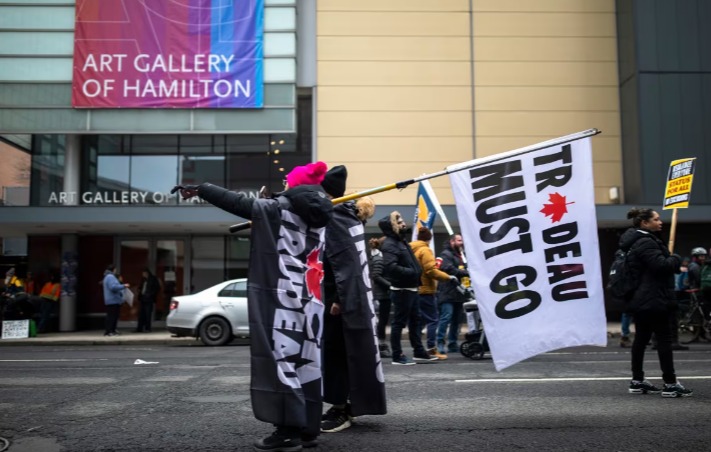Trudeau’s Legacy: Experts Weigh In on His Impact as He Prepares to Step Down
As Prime Minister Justin Trudeau prepares to step down, experts and analysts reflect on how he has transformed Canada over his nearly nine-year tenure. Trudeau entered office in 2015 promising “sunny ways” and a commitment to “real change.” His government has made strides in areas such as climate change, Indigenous reconciliation, and poverty alleviation, but critics argue that his administration has also faced significant challenges and setbacks.
Economic Changes
Shortly after his election, Trudeau implemented a “middle-class” tax cut and rolled out the Canada Child Benefit, which contributed to a notable decrease in child poverty. However, his government has not balanced the budget, with the federal deficit reaching $61.9 billion as of the latest economic update. Sahir Khan, vice president of the Institute of Fiscal Studies and Democracy, noted that while there has been significant poverty alleviation, the focus on wealth redistribution may have come at the expense of economic competitiveness.
Khan remarked, “The Trudeau government… chose an emphasis that focused on wealth redistribution and social policy. But if you’re concerned about competitiveness, he probably didn’t put the same level of emphasis on that.”
Indigenous Reconciliation
Trudeau has frequently highlighted his government’s commitment to advancing reconciliation with Indigenous communities. Perry Bellegarde, former national chief of the Assembly of First Nations, acknowledged the government’s “unprecedented” investments in Indigenous priorities such as education and housing. However, Trudeau has faced criticism for not fulfilling all promises, such as eliminating long-term drinking water advisories.
Bellegarde stated, “With these key strategic investments, it helped close that socioeconomic gap. That’s the strongest form of reconciliation.” He also expressed hope that key legislation affirming Indigenous rights will remain intact beyond Trudeau’s tenure.
Climate Change Initiatives
Trudeau has been recognized as the prime minister who placed the most emphasis on climate action. Catherine Abreu, director of the International Climate Politics Hub, highlighted the significance of Trudeau’s focus on climate issues. However, Canada has struggled to meet its 2030 emissions reduction targets, and critics point to delays in implementing key policies.
Abreu noted, “The level of profile that the climate issue has been given by this government is significant,” but also mentioned contradictions, such as the government’s purchase of the Trans Mountain oil pipeline.
Canada’s International Standing
Upon his election, Trudeau famously declared, “On behalf of 35 million Canadians, we’re back.” However, Thomas Juneau, an international relations professor, argues that Canada’s international reputation has not improved. He criticized the government for neglecting military investment and failing to meet NATO commitments, leaving Canada unprepared for global challenges.
Juneau stated, “Overall, Justin Trudeau is leaving Canada unprepared to deal with an increasingly dangerous, unstable, and unpredictable world.”
Immigration Policies
Trudeau’s government initially welcomed a significant influx of Syrian refugees, but recent immigration cuts have raised concerns about public sentiment on immigration. Mireille Paquet, director of the Institute for Research on Migration and Society, noted a shift in Canadian attitudes towards immigration, with more people expressing anxiety over new arrivals.
Paquet observed, “A lot more people feel anxious now at the end of Trudeau’s tenure when it comes to the number of immigrants admitted.”
Legalization of Cannabis
In 2018, Trudeau’s government legalized cannabis with the aim of reducing organized crime and protecting children. While the legalization has been considered a social success, the economic impact has been mixed, with many licensed producers struggling to achieve profitability.
Paul McCarthy, president of the Cannabis Council of Canada, stated, “The regulatory tax burden is too high,” highlighting ongoing challenges in the legal cannabis market.
Political Polarization
Trudeau’s time in office has also seen increased polarization among Canadians. Events such as the Freedom Convoy and public protests have intensified divisions. Lisa Young, a political science professor, suggested that Trudeau’s departure might reduce some tensions, but warned that polarization could persist if his successor pursues similar policies.
Young remarked, “I don’t think [the polarization] simply goes away with his departure… But over time, assuming the government changes, we may see some decrease in the really heightened polarization of this moment.”
